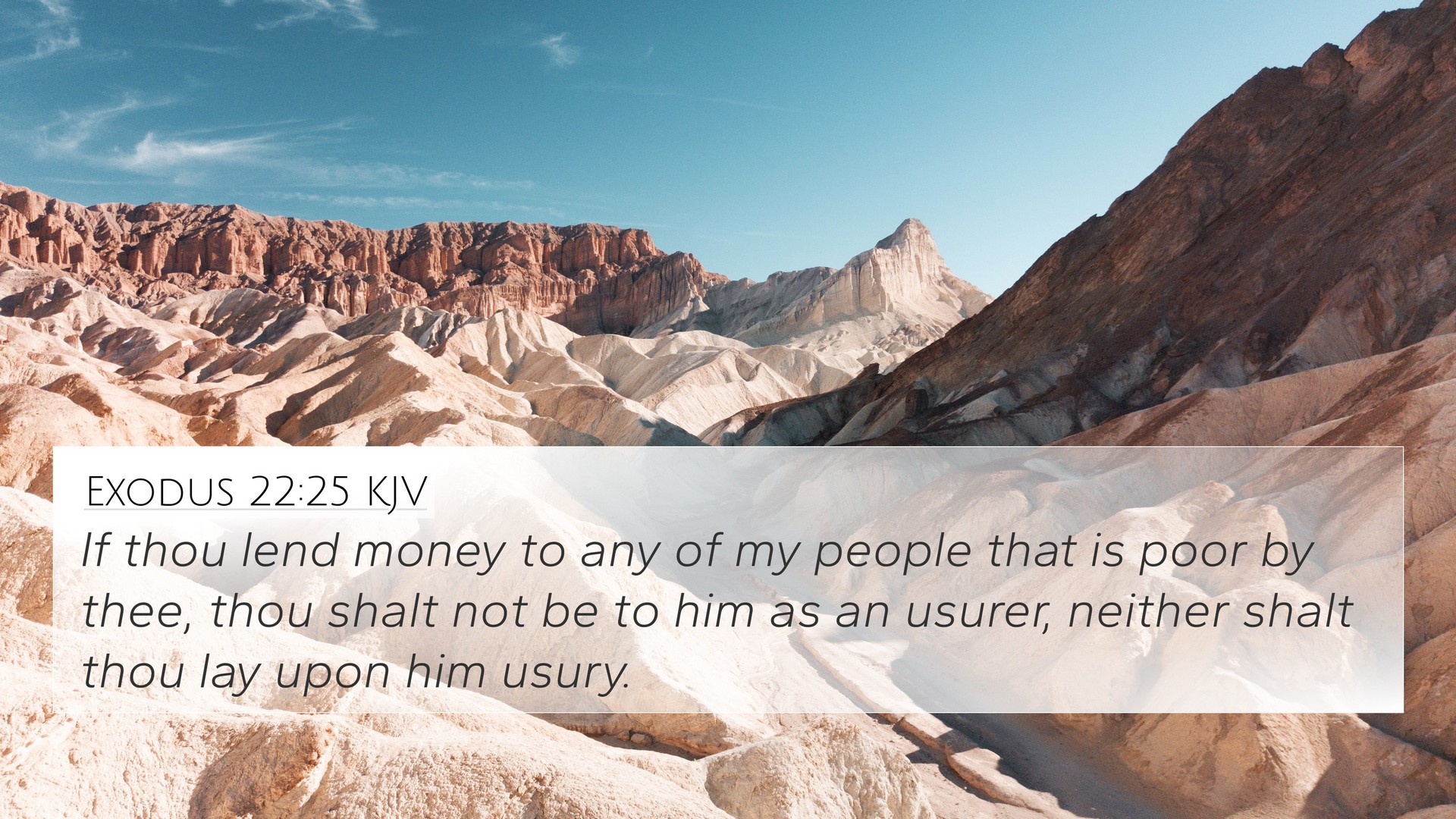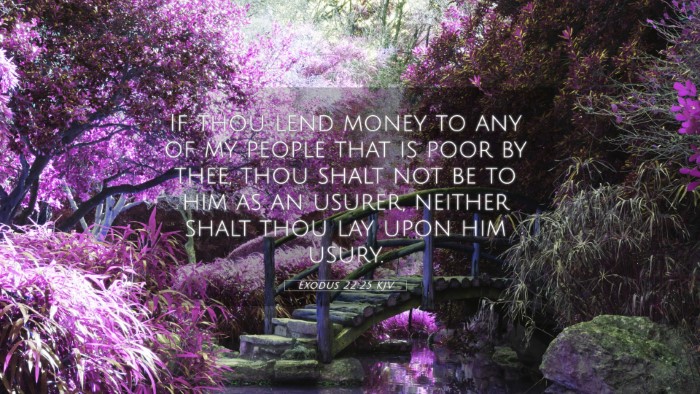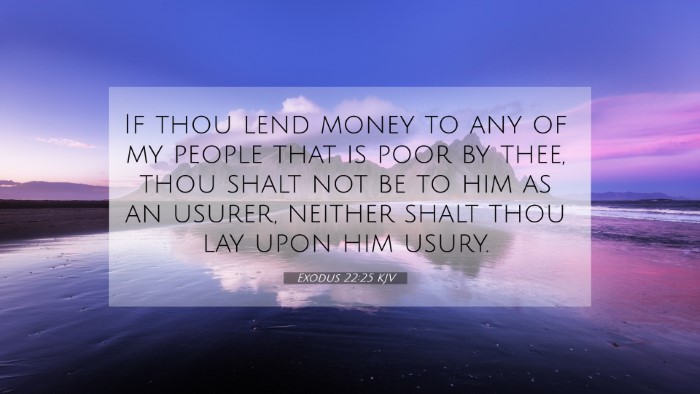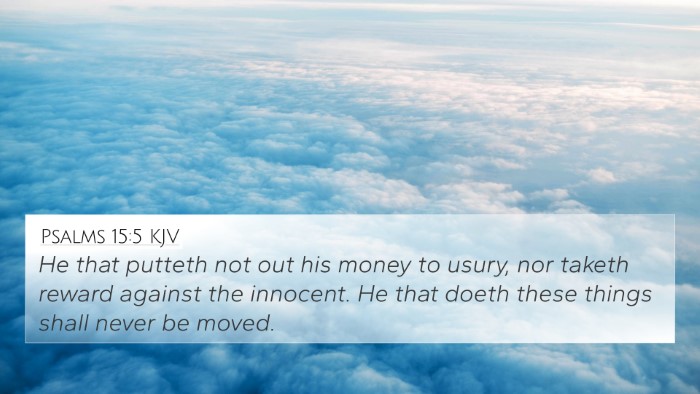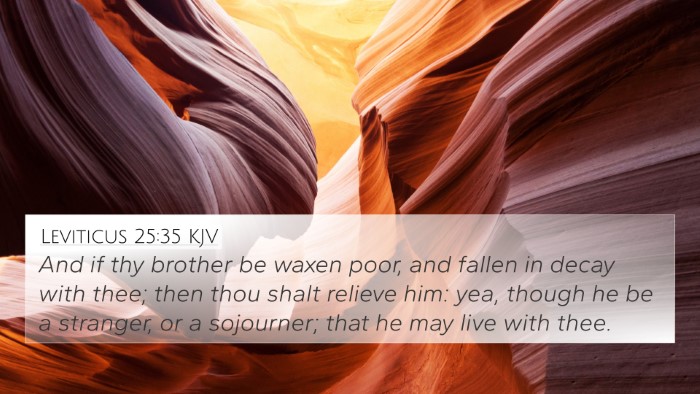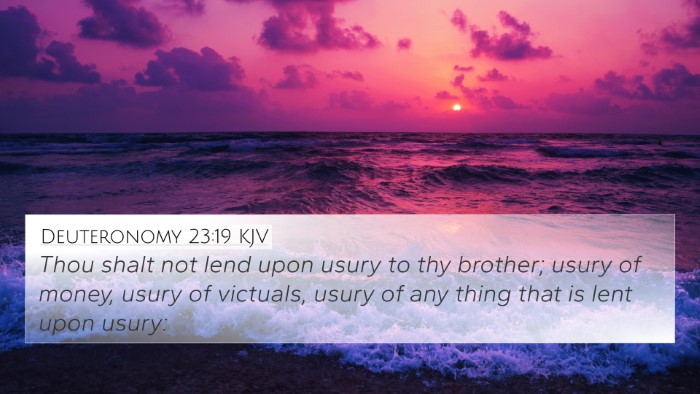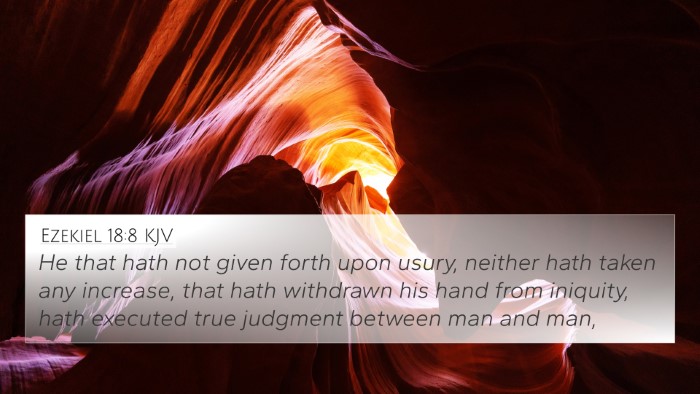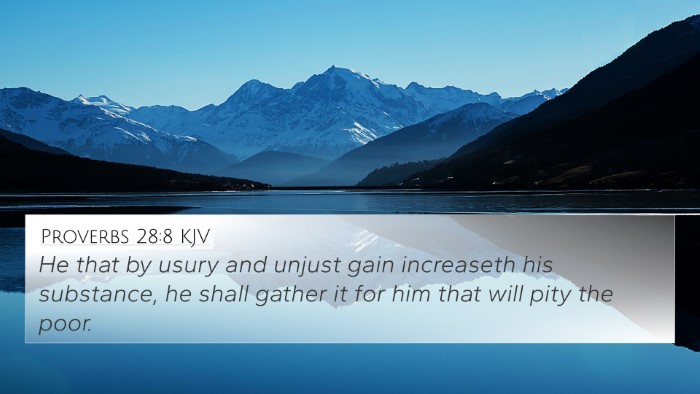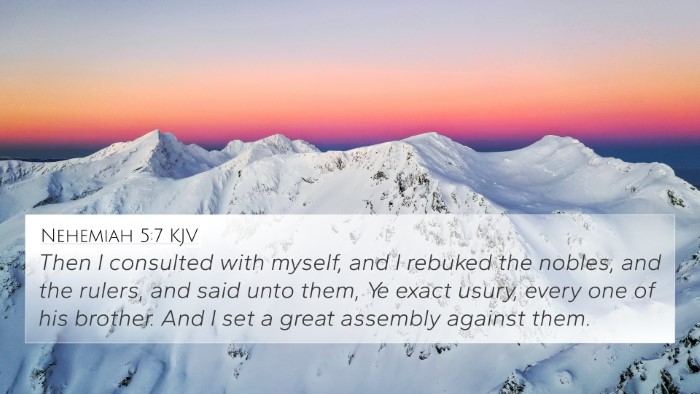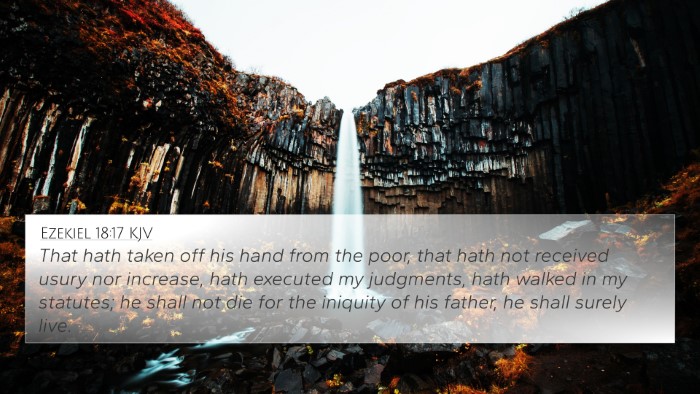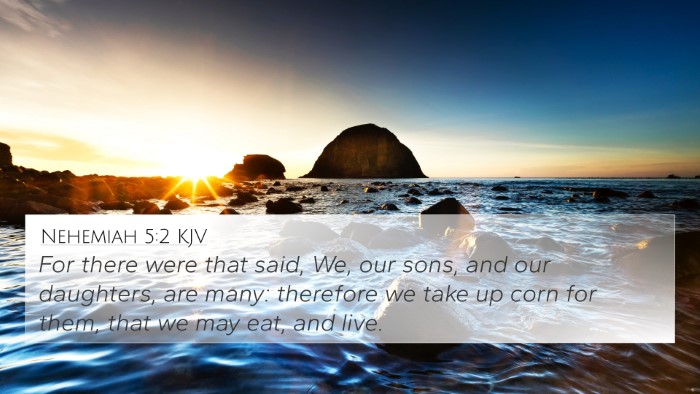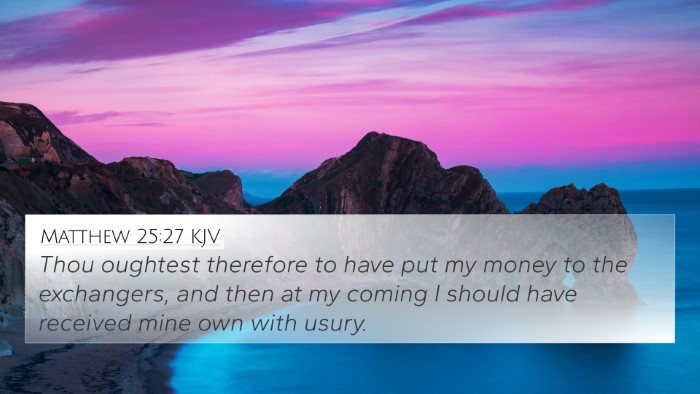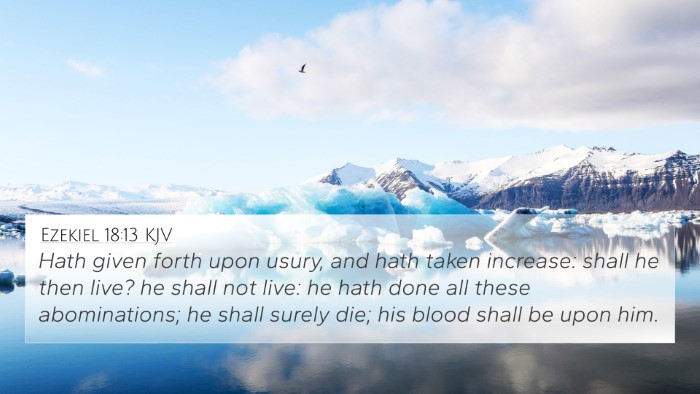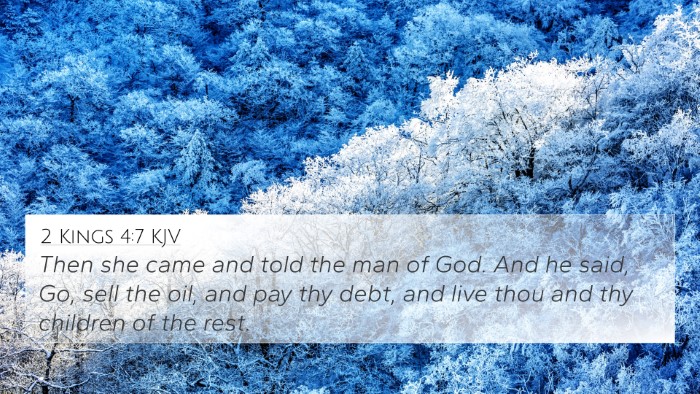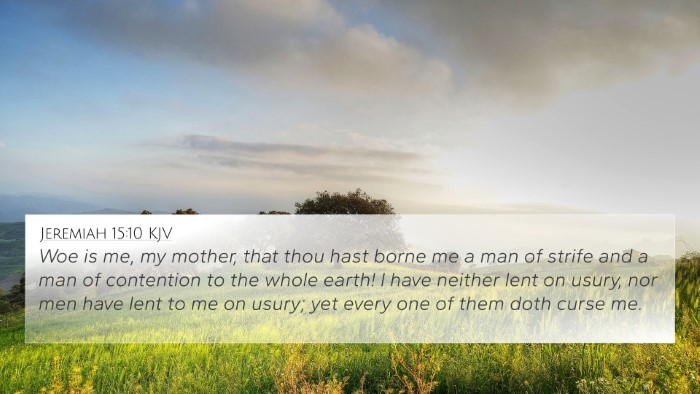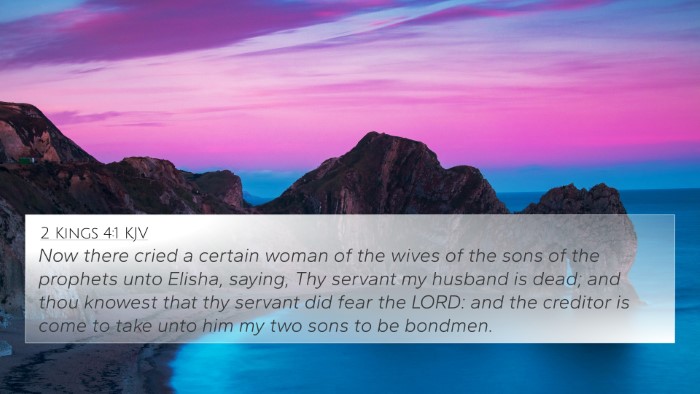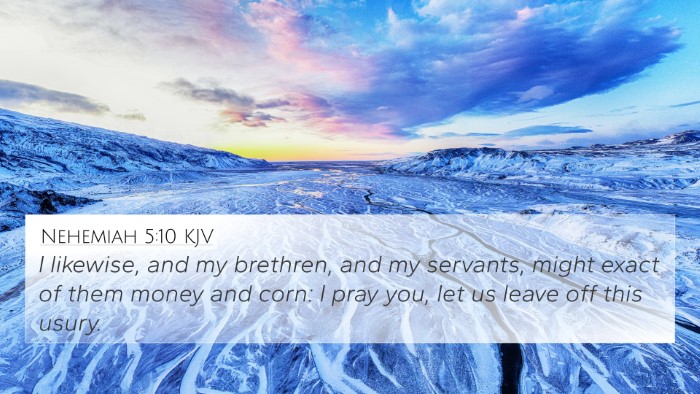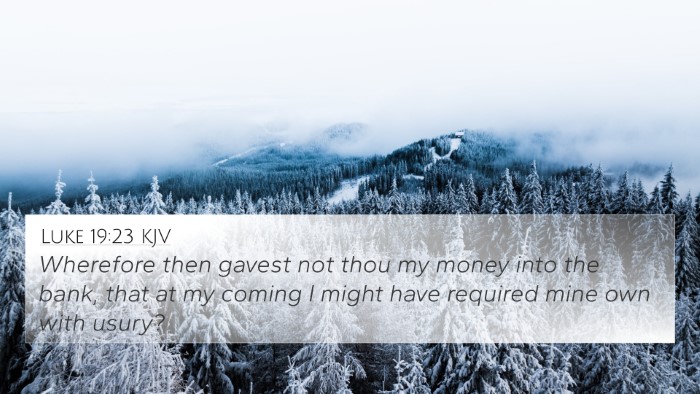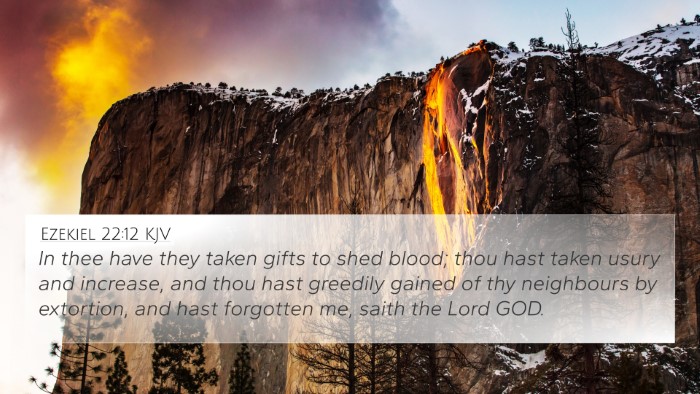Understanding Exodus 22:25
Exodus 22:25 states: "If you lend money to any of my people who are poor among you, you shall not be like a money lender to him; you shall not charge him interest." This verse is part of a larger set of laws God gave to the Israelites, which stresses the importance of compassion and ethical conduct, especially towards the less fortunate.
Meaning and Interpretation
The verse highlights several key concepts:
- Compassion for the Poor: The directive not to charge interest reflects a call for empathy towards those in need. It's a reminder that God's people should care for each other, especially the vulnerable.
- Unethical Practices: By forbidding interest on loans to the poor, God emphasizes that exploiting others, particularly those in dire situations, is unacceptable.
- Community Responsibility: The verse encourages a communal mindset where members support one another, ensuring that financial transactions are conducted fairly.
Commentary Insights
Matthew Henry's Commentary notes that this teaching is rooted in the principle of brotherly love. He emphasizes that lending should not be a profit-making scheme but rather an act of kindness. When God's people act compassionately, they reflect His character.
Albert Barnes adds that the prohibition against interest is a safeguard for the socio-economic fabric of the community. Charging interest could lead to further impoverishing those who are struggling, creating a vicious cycle of debt and poverty.
Adam Clarke's notes draw attention to the historical context, suggesting that such laws were intended to maintain equity and justice within the community. He suggests that the ethical standards God sets forth are timeless and relevant, urging adherence in all societies.
Cross-References and Related Verses
This verse connects beautifully with various scriptures that further flesh out its themes:
- Leviticus 25:35-37: "If your brother becomes poor and cannot maintain himself with you, you shall support him as though he were a stranger and a sojourner, and he shall live with you. Take no interest from him and profit, but fear your God." This verse reiterates the command to care for the poor without seeking personal gain.
- Deuteronomy 15:7-8: "If among you, one of your brothers should become poor, in any of your towns within your land that the Lord your God is giving you, you shall not harden your heart or shut your hand against your poor brother, but you shall open your hand to him and lend him sufficient for his need."
- Psalms 37:26: "He is ever lending generously, and his children become a blessing." This verse highlights the blessings that come from generous lending.
- Proverbs 19:17: "Whoever is generous to the poor lends to the Lord, and he will repay him for his deed." Here, the act of helping the impoverished is seen as a service to God, reinforcing the sacred duty of assisting others.
- Matthew 5:42: "Give to the one who begs from you, and do not refuse the one who would borrow from you." This New Testament teaching aligns with the ethos of Exodus 22:25 about aiding those in need.
- Luke 6:34-35: "And if you lend to those from whom you expect to receive, what credit is that to you? Even sinners lend to sinners, to get back the same amount. But love your enemies, and do good, and lend, expecting nothing in return." This passage emphasizes the selfless nature of lending as an expression of true love.
- James 2:15-16: "If a brother or sister is poorly clothed and lacking in daily food, and one of you says to them, 'Go in peace, be warmed and filled,' without giving them the things needed for the body, what good is that?" Here we see a call for practical help, reinforcing the themes found in Exodus.
Thematic Connections Across Scriptures
The themes of reciprocity, community support, and ethical lending found in Exodus 22:25 ripple through several other Bible passages, illustrating a cohesive message across the scriptures. This inter-Biblical dialogue shows how God's teachings are relevant for multiple generations and contexts.
In conclusion, Exodus 22:25 serves as an essential reminder of our responsibilities toward one another, particularly in ensuring ethical treatment of the vulnerable in our communities. By examining this passage alongside its cross-references, we grasp a deeper understanding of the Lord’s heart for justice, mercy, and community solidarity.
Exploring Further with cross-referencing tools
For those interested in deeper examination, utilizing tools for Bible cross-referencing can illuminate more connections between various scriptures. Here are some effective resources:
- Bible Concordance: A comprehensive guide to finding keywords and their occurrences throughout the Bible.
- Bible Cross-Reference Guide: Specific tools designed to link related verses.
- Cross-Reference Bible Study: Groups study scriptures looking for thematic links.
- Bible Chain References: Systems that connect passages with similar themes or teachings.
